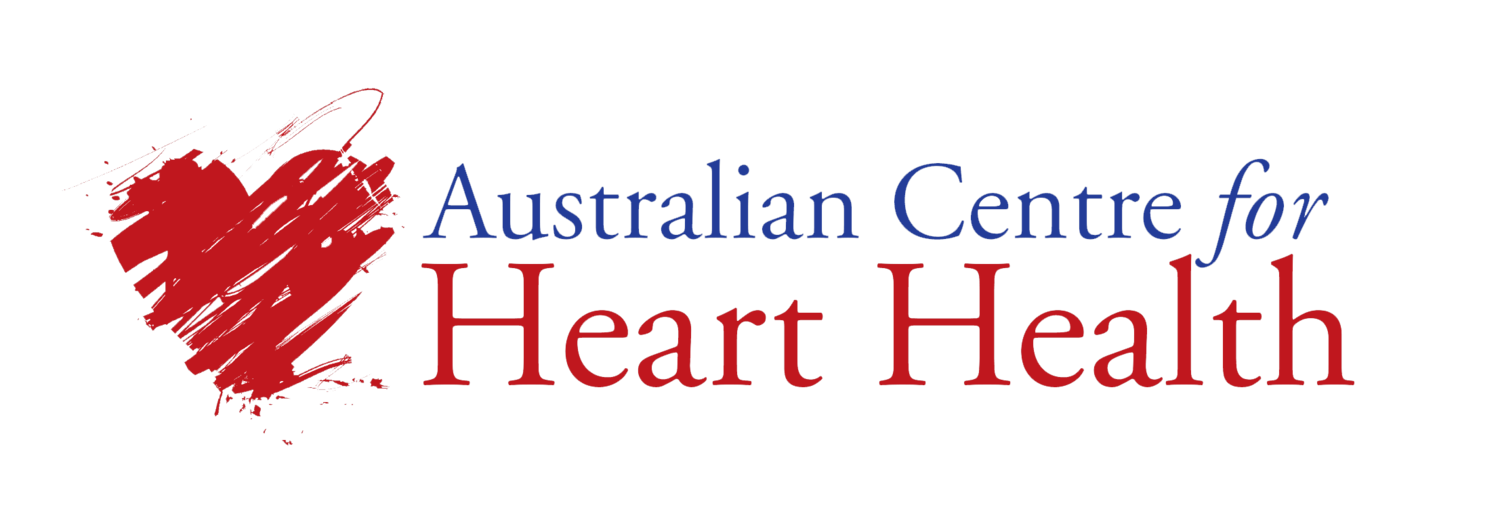Healing from Cardiac Trauma
Written by Dr Mirella Di Benedetto, Clinical Health Psychologist, Cardiac Counselling Clinic, ACHH
The fight-flight response. This response to a cardiac event often involves the fight-flight-freeze response, a neurobiological response that is designed to protect us from harm. During this response the body physically prepares itself to fight off the threat or to run away from it. For example, heart rate and breathing increase.
However, when we experience these events, we can’t always run or fight. Often, we become frozen, stuck or trapped; unable to move.
How does this happen? The traumatic response is triggered by a strong emotional response, often fear or anger. When a strong emotional reaction is paired with a traumatic event, it forms a strong neurological imprint in our brains because our brain has been designed to remember these events to help us avoid them in the future.
What happens next? At the time of the trauma or soon after, we need to know that we are safe and ok. If we can’t do that then the emotions often remain “trapped” within our bodies and can manifest later as problems with sleep, low mood, irritability, anger outburst, comfort eating, using drugs or alcohol, working long hours, keeping busy – anything that distracts us from feeling these strong and often overwhelming emotions that keep popping up and that keep us stuck in time and reliving that trauma. This phenomenon often, but not always, happens to people who have experienced some other past trauma.
What can we do about this? Highly trained psychologists at our Cardiac Counselling Clinic can help you heal from these traumas. To make an appointment or referral go to www.australianhearthealth.org.au/clinic-appointment
Is remote-delivered cardiac rehabilitation as good as face-to-face cardiac rehabilitation?
Written by Mr Michael Le Grande, Senior Research Fellow, ACHH
Over the past two years during the coronavirus disease-19 (COVID-19) pandemic, physical distancing restrictions around the world have been implemented resulting in many cardiac rehabilitation (CR) services being suspended or having significantly reduced capacity and staffing, thus enforcing rapid adoption of online delivery formats.
Remote-delivered CR programmes via telehealth have been seen as a viable alternative to face-to-face support during this period. Indeed, the ACHH has implemented several online support programs for patients recovering from heart disease (eg. Teleheart, Back on Track, Cardiac Blues, HeartHealth Connect).
A recent paper published in the European Journal of Cardiovascular Nursing set out to assess how remote delivery during COVID-19 affected patients' health-related quality of life (HRQL) outcomes & experiences. The authors examined the effects of remotely delivered CR offered by four publicly funded CR services in Sydney during the COVID pandemic. Exercise and education sessions were all offered online via telephone or videoconferencing and delivered by a multidisciplinary team that would normally deliver face to face CR. These online sessions were compared with face-to-face sessions delivered by the same team and both approaches were assessed for differences in health-related quality of life and qualitatively via interviews to assess patients’ experiences of both approaches.
Results showed that remote-delivered CR participants had equivalent benefits to face-to face CR in all HRQL domains and more improvements than face-to face in the Mental Health domain. The qualitative interviews showed that patients valued face-to-face CR for direct exercise supervision and group interactions but preferred remote-delivered CR for convenience and flexibility. In particular, negotiable contact times were cited as an important advantage of remote-delivered CR compared to the more limited schedule offered by face-to-face programs. One major disadvantage of the online approach, however, was lower completion rates and lower participation by people from culturally and linguistically diverse backgrounds.
So, the answer is – Yes! Remote-delivered CR is as good as face-to-face CR, with some caveats. Overall, this study provides evidence that remote delivery is a reasonable alternative to in-person for many people but not all. There is certainly room for improvement in delivery of exercise-based sessions online and the preferences of cardiac patients from culturally and linguistically diverse backgrounds may require further development. It is feasible that a hybrid model of CR delivery (both face-to-face and remote) may deliver the optimal support for patients. This will need to be carefully assessed in future studies.
Reference
Candelaria D, Kirkness A, Farrell M, Roach K, Gooley L, Fletcher A, et al. Remote-delivered cardiac rehabilitation during COVID-19: a prospective cohort comparison of health-related quality of life outcomes and patient experiences. European Journal of Cardiovascular Nursing. 2022:zvac006.
Training Update
The ACHH is fortunate to have secured a range of talented and highly respected presenters to teach in our annual Cardiac Rehabilitation and Secondary Prevention Training Program. This is our flagship health professional training program, which aims to support the learning needs of Australia’s cardiac rehabilitation workforce. In November last year we presented this 4-day program exclusively online for the first time in the program’s 30-year history.
Training participants were particularly thrilled with the presentation by Cardiology pharmacist Adam Livori. Adam is the Cardiology Clinic Pharmacist and Team Leader- Medical Specialties at Ballarat Health Services.
In 2020 he was awarded the William Mercer Young Achiever Award by the Victorian Branch of the Society of Hospital Pharmacists.
Adam is expert in interventions to support improved adherence to medication following a cardiac event. He is soon to commence his PhD in pharmacoepidemiology.
Adam’s passion for research and education was evident to the more than 60 participants who attended the November training program. Adam enthralled the audience with a wide-ranging education session on current medical therapies for heart disease, strategies for client education, research evidence and guidelines along with strategies to identify barriers to adherence and interventions to support patients to take prescribed medications. The evaluation of this session was extremely positive. A number of training participants described the presentation as “the best cardiac medication talk ever” with one proclaiming “another brilliant presenter!”. Adam’s talk was described by participants as “highly engaging”, “logical and digestible”. Participants appreciated Adam’s ability to “pitch the presentation at a level that was easy to understand,” with particular comments on Adam’s “wealth of valuable information” and the “great in-depth coverage, which really enhanced and extended my knowledge.” Participants were able to readily reflect on how they would translate this knowledge into clinical work, with one commenting “Adam’s presentation was incredible, I learnt so much and it will certainly add value to my work”. The importance of the presentation was endorsed by a comment stating that “Adam's presentation should be shared extensively with all CR clinicians.” We congratulate Adam for his excellent presentation and look forward to working with Adam in our commitment to provide high quality education for cardiac rehabilitation health professionals.
Our annual Cardiac Rehabilitation and Secondary Prevention Training Program will be held from the 14th to 17th November 2022. Registrations will open soon!
Research Update
Update on the Back on Track trial and the Cardiac Emotions Study
As the new year begins, we are pleased to inform you that 122 participants have now completed every aspect of the Back on Track Study, which has included undertaking the Back on Track online support program as well as completing an online questionnaire at 3 timepoints. Additionally, data collection for the Cardiac Emotions Study, a pioneering international study, has also concluded. We received a fantastic response with over 400 participants being involved in this study, which involved completing a one-off online questionnaire about their emotional experiences during the year after their cardiac event. Our next stage will be to commence data analysis and prepare journal articles on the study findings for both of these important studies. We thank everyone for their contribution and particularly for referring your patients and clients to participate in these two important projects. We look forward to providing you with a snapshot of our findings in the next newsletter. We also acknowledge the HCF Research Foundation for financial support for the Back on Track trial, and also to our donors for providing financial support for all of our research studies.
New research – the SCAD survivors experiences study
We have also recently commenced a new study, the Spontaneous Coronary Artery Dissection (SCAD) Survivors Experience Study, in conjunction with colleagues at the Victor Chang Cardiac Research Institute. Very little research has been undertaken with this group of patients, and little is known about the emotional recovery after SCAD, which is why this study is so important. In the first of three phases in this study, we have undertaken seven online focus groups with 30 SCAD survivors from various locations across Australia who have shared their stories about their emotional experiences and recovery after SCAD. We are extremely grateful to all who have participated. We are currently compiling the findings of the focus groups and will be commencing Phase 2 of the study shortly, which will involve a large Australia-wide survey of SCAD survivors. We will continue to update you on this important study in future newsletters and hope to have more to tell you soon.
Want to find out more about our research?
You can find out more about these and our other research studies by going to the research pages of our website or click here - https://www.australianhearthealth.org.au/current-programs
Cardiac Counselling Clinic
We have some good news to start off the year, the Australian Centre for Heart Health has recently obtained additional office space to accommodate the growing needs of the Cardiac Counselling Clinic. While services will continue to be provided via Telehealth (both online and by telephone), there is some flexibility if there is a preference to attend in person. Requests are carefully considered and only available for those clients residing in the Melbourne metropolitan area. Any clients attending will need to follow strict covid safe practices.
Additionally, we would also like to warmly welcome our new Master of Psychology student, Ms Betul Mercandagi who will be completing her clinical placement with us, an essential requirement of the Clinical Master’s Program at Federation University.
For more information about our counselling clinic please visit our website at https://www.australianhearthealth.org.au/cardiac-counselling-clinic






